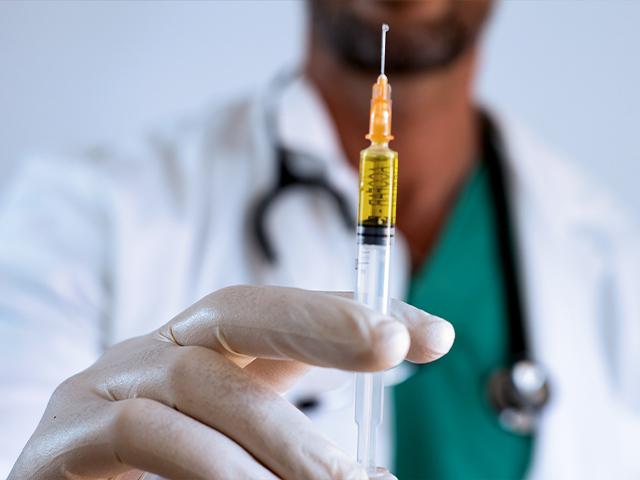Andrea Minichini was studying nursing when she got the news that she was pregnant. Reluctantly, she and her boyfriend decided to abort their baby.
But Minichini was unsettled when they went to the Planned Parenthood clinic in Morristown, New Jersey. Immediately after she swallowed the abortion pill, she regretted what she had done.
"I ran out and actually started trying to throw up but nothing would come out," she told CBN News.
Saving Her Baby
On a newfound mission to save her baby, Minichini called several obstetricians and even went to her local hospital's emergency room. Doctors repeatedly told her there was no way out and that she would need to take the second abortion pill within 24 hours.
After two sleepless nights, her mom discovered the Abortion Pill Reversal hotline. The hotline referred Minichini to a local doctor who agreed to see her immediately.
That doctor discovered the baby still had a heartbeat and that miraculously, it had survived a break in Minichini's placenta.
"The baby had, instead of going toward it, he had gone away from it. He had curled up in a little ball," Minichini said.
The doctor immediately began the reversal process. It involves flooding a woman's body with progesterone, the pregnancy hormone. Progesterone blocks the deadly effects of mifepristone, found in the abortion pill RU486.
"These are hormones that essentially the woman's body has anyway, and we're just supplementing that," abortion reversal pioneer Dr. Matt Harrison explained.
Reversing Abortion
Harrison created the protocol nine years ago when a patient came to him soon after taking the first abortion pill. He remembers clearly the conversation with her.
"She said, 'I will do whatever it takes to save my baby,'" he said. "And that was just such a powerful message coming from someone who had just taken a medication to end her baby's life and realized immediately that she had done something that she didn't want to do."
Harrison said he was stumped and excused himself to pray.
"I was like, 'I have no idea what to do.' This is not something that they teach you in medical school," he said.
Harrison adapted a protocol already used for fertility treatments. The abortion reversal protocol takes advantage of a two-day gap between the taking of the first and second abortion pill.
The reversal process must begin within three days of a pregnant woman taking the first pill and before she takes the second.
Throughout the first trimester, the woman receives regularly doses of progesterone.
So far, the hotline has documented 87 mothers who have used the reversal protocol and delivered healthy babies. Another 74 women are currently expecting.
Pitfalls and Roadblocks
However, not everyone succeeds. About 40 percent have failed in their hope of reversing their abortion.
Obstetrician Dr. Lewis Lipscomb has successfully helped to deliver four babies after using the protocol. He said the process can be tense.
"It's a bit nerve-racking because we're all just on pins and needles hoping that the next two or three weeks are going to go smoothly for her," he told CBN News.
The question of birth defects is tough. So far, all the mothers who have delivered babies using the protocol have delivered healthy children.
Still, Harrison and other advocates acknowledge that more research is needed. In the meantime, they expect Planned Parenthood and other abortion supporters to push back against the life-saving technique.
"They have a very powerful machine out there that will make fun of this, that will attack this, that will say it's junk science, that it's not FDA-approved, do whatever they have to to combat it," Harrison said.
Loving Her Baby
Father Frank Pavone, national director of Priests for Life, is working with Harrison to raise awareness by distributing reversal kits to healthcare workers and pro-life advocates.
"The reversal technique gives us hope that we can say to her, 'It's not too late. We can save your baby,'" Pavone told CBN News.
"To help them turn the ship around and to love them, regardless of what they did yesterday and to help them learn to love their baby is very exciting," Lipscomb said
Today, Minichini and her 3-month-old son Gabriel are thriving, thanks to family support and a life-saving procedure that could potentially help millions of other women reverse a life-altering decision.
Did you know?
God is everywhere—even in the news. That’s why we view every news story through the lens of faith. We are committed to delivering quality independent Christian journalism you can trust. But it takes a lot of hard work, time, and money to do what we do. Help us continue to be a voice for truth in the media by supporting CBN News for as little as $1.











 Support CBN News
Support CBN News







